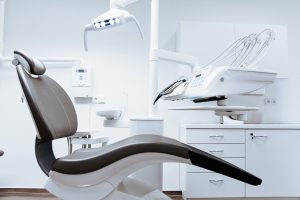Prosecco is one of those drinks that were nowhere and then all of a sudden it was everywhere. Now it’s often the tipple of choice, particularly for women and it’s easy to knock back a few glasses without even noticing. However, dentists are concerned about this trend and especially the effect it can have on someone’s smile. Unlike still wines which are generally enjoyed with a meal, prosecco is often served as an aperitif.

It is one of those drinks that certainly don’t need a meal to make it better! One of the problems with this particular drink is that it is highly acidic and it also contains sugar which is doubly bad news for your teeth. What makes it even worse is that it’s one of those drinks you tend to sip over a long period of time or often several hours. This is particularly bad for your teeth because it means they are continually being bathed in sugar and acid.
Sugars are used by mouth bacteria as an energy source and allow them to thrive. These bacteria create acid as a by-product and when it’s already present in a food or beverage, the acidity levels in your mouth will become even higher. The average glass contains about 1 teaspoon of sugar while it’s fizziness is due to the release of carbon dioxide which then dissolves into carbonic acid. As a result, prosecco tastes refreshing but this is the reason why it’s so acidic.
Why Acid Is the Enemy of Teeth, and It’s Not Just Prosecco That’s to Blame
People imagine sugar is the enemy but it is the way it is used by mouth bacteria that makes it so bad for teeth. When sugar is converted into acid, it’s the acid that eats away at tooth enamel and which causes a condition called acid erosion. When this occurs, as for example by sipping on fizzy wine, then it can begin to develop around the necks of teeth, right at the junction where your teeth meet the gums.
Initially, it may look as if this area is whiter than normal and it’s because the tooth enamel is gradually becoming softer. This is the very first sign of tooth decay. The process that allows this to develop is called demineralization. It occurs when teeth are bathed in acid which has the effect of removing some essential minerals and these include phosphorus and calcium.
Demineralization continues as long as the mouth remains acidic which is why sipping an acidic drink over a long period of time is a very bad idea. Acidity levels in the mouth remain high for up to an hour after eating or drinking, after which a process called remineralization occurs. With remineralization, some of the minerals that were removed from your tooth enamel are redeposited.
But will continual demineralization and remineralization will weaken and gradually erode away your tooth enamel. Over time, this puts you at risk of cavities. You will also damage your teeth if your diet contains many highly acidic foods or foods that are high in carbohydrates and sugars. It’ll also harm your teeth if the food can be converted into acid by bacteria in your mouth.
One particular problem with today’s modern diet is that many people snack and prefer to eat several smaller meals rather than two or three main meals. While this may fit in more easily with their lifestyle, it does mean that teeth are more likely to be exposed to acids and sugars for longer periods of time. Another habit that can be bad for teeth is sipping on sodas or sports drinks, both of which tend to contain high amounts of sugar.
Even low-calorie soda is bad for teeth because it tends to be highly acidic.
Small Changes That Could Make a Big Difference to Your Dental Health
Even making some small changes to your diet could make a big difference to your dental health. Perhaps instead of sipping on fizzy wine before or after a meal, choose to have it with the meal. Otherwise, keep a big glass of water nearby to regularly sip on. Regularly rinsing your mouth with water will help remove some of the acidity, reducing the damage to your teeth.

Another thing you may want to try when drinking something very acidic is to drink through a straw as this will minimize its contact with your teeth. As soon as you are done eating or drinking something acidic or sugary, aim to clean your teeth half an hour to an hour afterward. This gives your tooth enamel a chance to re-harden before you brush it.
Brushing your teeth while the enamel is still soft could cause further damage to your teeth. After brushing, spit out excess toothpaste but don’t rinse your mouth. Some of the fluoride in your toothpaste will remain in your mouth, thinly coating your teeth and providing some extra protection. If you like to snack in between meals, think about choosing snacks that are healthier for teeth.
Good options include plain Greek yogurt, fresh fruit and fresh vegetables and yogurt-based dips and hummus. Cheese also makes an excellent snack but if you have a bad candy habit that you simply can’t break, opt for chocolate rather than hard candies. Chocolate will soon melt and will be washed away more easily than a hard or sticky candy.
Get Advice from Your Dentist Good Preventative Care
Next time you go for a checkup and cleaning ask your dentist or hygienist for some advice on how to maintain healthy and strong teeth. Your hygienist can offer advice on how to brush and floss properly. You will know exactly how to keep your mouth clean and how to remove the maximum amount of plaque bacteria. Your dentist may offer dietary advice and could even analyze your diet to see if it could do with improving.

They might also suggest fluoride treatments. Fluoride is a very useful mineral for helping to harden tooth enamel. Most of us obtain fluoride through brushing our teeth with fluoridated toothpaste. Some people may benefit from using fluoride mouthwash or from having professional strength fluoride treatments in the dental office.
Maintaining a preventative dental care regimen that includes regular checkups and cleanings is very important. Regular check-ups can save you money and your teeth. This gives your dentist the chance to closely monitor your dental health and to quickly treat any small signs of cavities. Sometimes the very first signs of acid erosion can be treated with fluoride while small cavities can be easily mended using advanced restorative techniques and materials.
Having your teeth regularly cleaned will remove any hardened plaque bacteria. It is a very effective way to help keep your teeth and gums strong and healthy.







